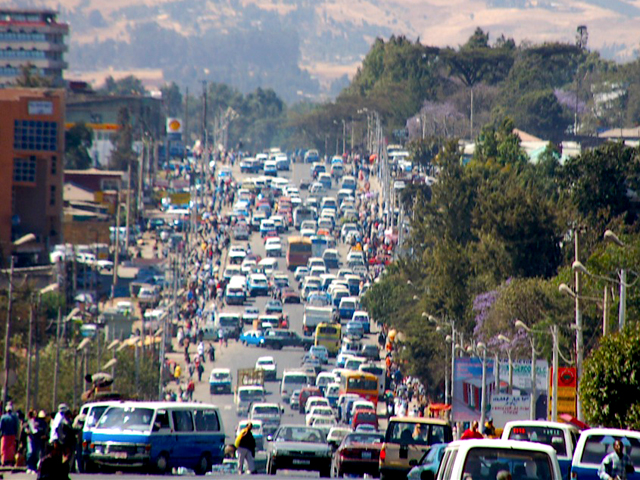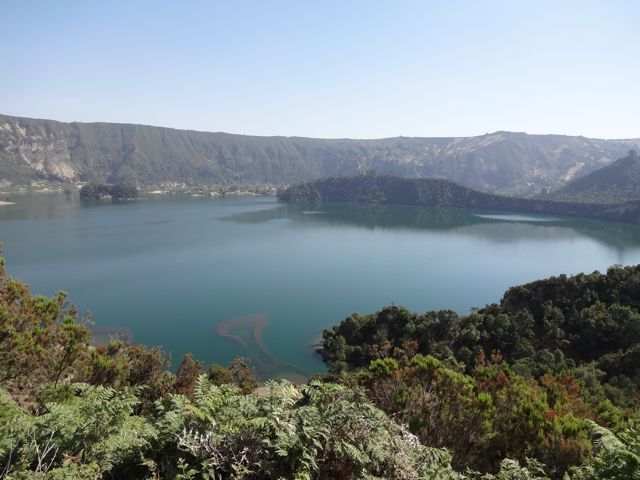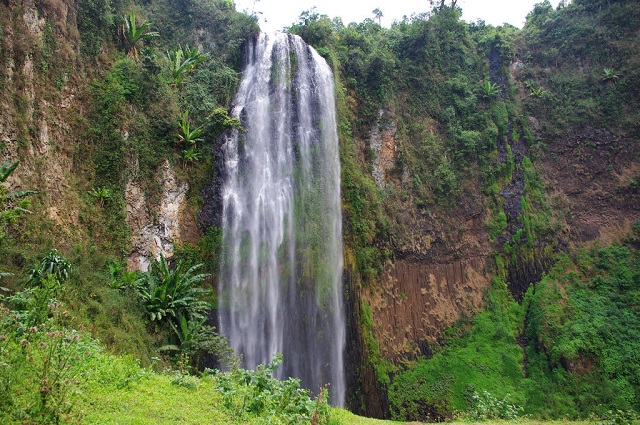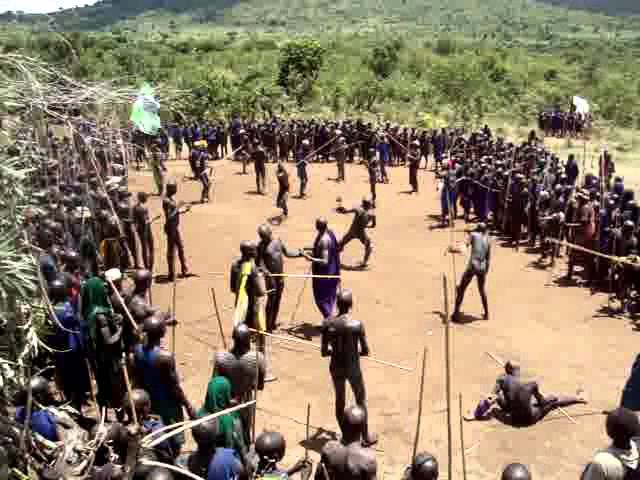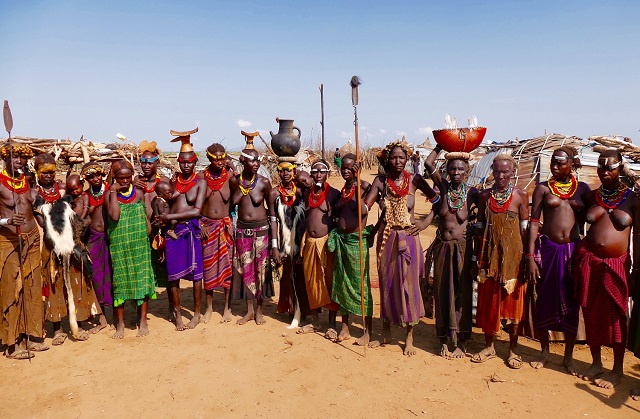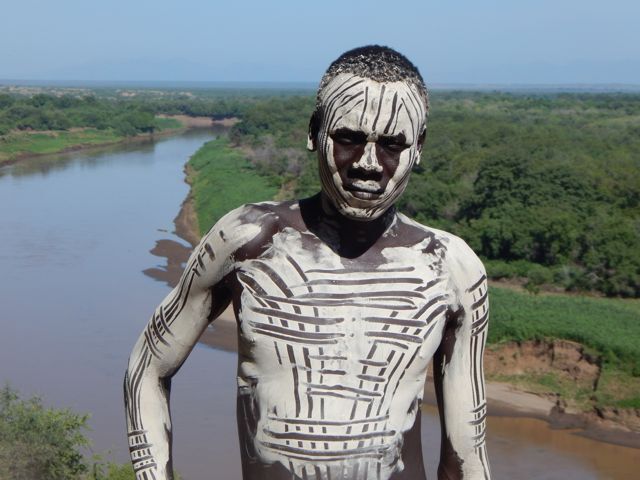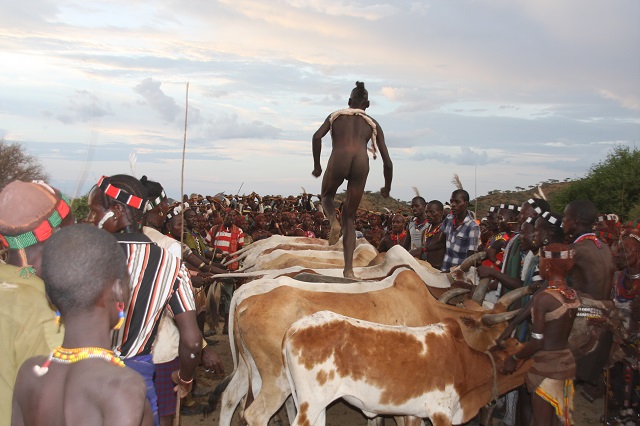Western- and Southern Ethiopia (12 days)
About this Tour:
This is a true adventure expedition starting in the still widely unknown Western part of the Ethiopia, where not only the country’s the last rain forests are found but also the famous Coffee Arabica is said to have its origin. Few travellers would expect such lush vegetation in Ethiopia. Travelling further into the Southwest, we will visit the tribe of the Surma people, still almost completely isolated. We then cross the Omo National Park to acquaint with many more of the fascinating tribes of the Omo valley. On our way back to Addis Ababa, we still have many more highlights ahead of us, such as meeting the Mursi tribe in the Mago National Park, the Konso region or Arba Minch to mention a few.
Highlights:
- Trekking at Wenchi crater lake
- Rain forests of Bonga with rich flora and fauna
- Visit to the Surma tribe, one of the most isolated and traditional ethnic groups in Ethiopia
- Visit to the Omo- and Mago National Parks (UNESCO world heritage sites) with the fascinating tribes of the Omo Valley (Hamer, Karo, Dassanech, Mursi)
- Visit of the colourful markets of the Omo valley
- Authentic encounters with local communities
- Visit to the Konso region (UNESCO world heritage site)
- Boat safari on lake Chamo See with Africa’s biggest crocodiles, hippos and numerous bird species
- Stelae of Tyia (UNESCO world heritage site)
Short Info:
- Tour code: WET-WESE-12
- Accommodation: basic / middle-class hotels and lodges / camping in Kibisch Surma, optionally also in Turmi and/or Jinka.
- Number of domestic flights: 0
- Required fitness level: reasonably fit
Day 1: Arrival in Addis Ababa and City Tour
Upon arrival at Bole International Airport you will be met by a Welcome Ethiopia Tours representative and be taken to your reserved hotel. Depending on your arrival time, we have various sightseeing options:
- Mount Entotowith the best views over the capital.
- Institute of Ethiopian Studies, where you can see a variety of artifacts from all the different regions reflecting the history and culture of the country
- National Museum which among other exhibits the 3.5-million-year-old bones of Lucy.
- George Cathedral, where paintings by the famous Ethiopian artist Afework Tekele and other ecclesiastical wealth and cultural heritage of the past are displayed.
- Trinity Cathedral: this is the burial place of members of the imperial family and noted patriots; the cathedral is the most magnificent of its kind in the country, ornamented with carvings, mosaics and other artistic works.
- The Mercato, the largest open-air market in Africa
Accommodation: Hotel, Addis Ababa
Day 2: Addis Ababa – Wolliso – Wenchi Crater Lake – Wolliso (185 km)
Morning:
We start our journey from Addis Ababa westward to Wolliso, from where we reach Wenchi crater lake located towards the North in less than 2 hours.
Afternoon:
In Wenchi we undertake a pleasant trekking (optionally also on horseback) through stunning nature. From the rim of the crater we descent into a beautiful valley abundant with rivers. We may also cross the lake in a traditional boat. In the late afternoon, we return to Wolliso where we spend the night.
Hotel: Negash Resort, Wolliso (www.negashresort.com)
Day 3: Wolliso – Jimma – Bonga (345 km)
After breakfast, we continue westward via Jimma to Bonga. On the way, we will visit the palace of the former Kafa king Ras Abba Jifar II overlooking the town and the adjacent coffee forests. The palace is a relic of a glorious past when coffee trade gave the king wealth and power. The then economically strong region remained independent from the Ethiopian empire until 1930. After our visit in Jimma, we continue to Bonga (120 km). We will reach the small town of Bonga located in the heart of the Kafa region and surrounded by fantastic mountainous rain forest in the afternoon.
Accommodation: Hotel or Guesthouse, Bonga
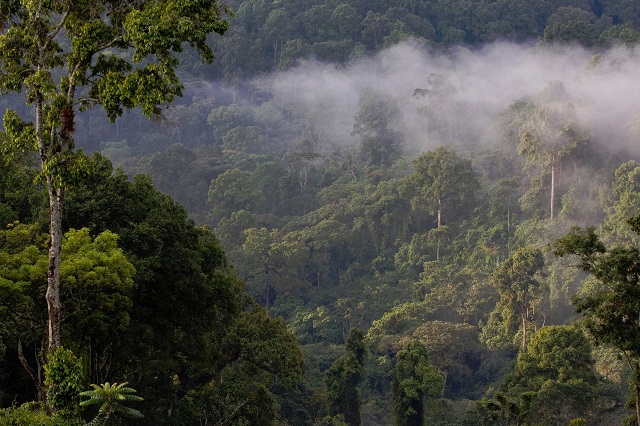
Day 4: Full Day in the Kaffa Region
Today we start with an excursion to the Alem Gonna wetlands. An early morning visit not only pays off because of the many bird species and De Brazza monkeys, but also because of the mystical atmosphere created by the landscape shrouded in mist. We walk through the wetland during sunrise and enjoy a freshly prepared breakfast picnic.After a short stop in Bonga, we will go on a short trek to the Barta waterfall (approx. 1h). The waterfall is over 70m high surrounded by basalt walls in the middle of the rain forest. On our way back, we will stop at the house of Mirutse, a local bee-keeper producing here organic forest honey. He will give us some interesting information on bee-keeping and local plants.For those with plenty of energy left after lunch, we have an option of another interesting walk to some hot springs located in the middle of the rain forest (10 km walks back and forth). However, there are also less strenuous options in this incredibly diverse area.
Accommodation: Hotel or Guesthouse, Bonga
Day 5: Bonga – Mizan Teferi – Kibisch Surma (280 km)
After breakfast, we continue our journey to Kibish. On the way, we will shortly stop at the Bebeka coffee plantation, where coffee, tea, spices and rubber trees are cultivated and we may learn about the local coffee production. Between riparian forests, grassland and bush savanna we are approaching the land of the Surma. The Surma are pastoralists, and the number of cattle they possess determines their everyday life in many ways. The tribe is also well-known for the plates used by their women, and their white ritual body painting and decorating scars.
Overnight: Camping in Surma Kibish
Day 6: Full Day in Kibisch Surma
Today we will visit several villages of the Surma and gain some insight in their way of living and traditions. Since it can get very hot during the day, we undertake our visits either early in the morning or in the late afternoon. We may enjoy our time in between at the river, only five minutes from the camp. We also hope to become witnesses of ritual stick-fight (Donga). Donga fights often take place in September.
Overnight: Camping in Surma Kibish
Day 7: Kibisch Surma – Omo National Park – Omorate – Turmi (140 km)
Morning:
Early in the morning, we depart and cross the Omo National Park with its fascinating flora- and fauna towards South. The park was founded in 1959 as Ethiopia’s first national park and has he the densest population of animals in the country. With a little luck we will spot buffalos, gazelles and even elephants.
Afternoon:
We should reach Omorate around noon. Here we will visit the Dassanech people famous for their nomad lifestyle and very interesting decorations and scarification on their bodies. We also enjoy great views of the Omo river while crossing in a dugout canoe.
We then have 70 km left until Turmi, where we will reach in the late afternoon.
Accommodation: Lodge or Camping, Turmi
Day 8: Turmi – Karo – Turmi (110km)
Morning: Karo Village of Korcho
In the morning, we drive to the Karo village of Korcho (55 km), located on the banks of the Omo river. The Karo tribe comprises nowadays only approx. 3000 people. This ethnic group is amongst other famous for their extravagant hairstyles, their body scars and body painting with natural colours. The latter symbolising by its used pattern that a warrior has been brave when fighting an enemy or a wild animal. Also using chalk for their body painting is of common use among the Karo.
Afternoon: The Hamer tribe
Turmi is well known for its traditional events and with some luck we will even participate in a Hamer marriage ceremony, with its bull jumping ceremony and more! In the late afternoon, we will also visit a nearby Hamer village and encounter the tribe in its daily life surroundings. We may even witness a moonshine dance (Evangadi), a traditional dance of young Hamer men and women.
Overnight: Turmi Lodge or Camping, Turmi
Day 9: Turmi – Dimeka – Jinka (122 km)
After breakfast, we visit the colourful market in Dimeka near Turmi (Saturdays only), frequented by several tribes of the Omo valley. We then continue to Jinka where we will reach in the afternoon.
Accommodation: Lodge or Camping, Jinka
Day 10: Jinka – Mago National Park – Konso (268 km)
Morning: Mago National Park
We enter the Mago National Park and proceed to visit to the Mursi tribe and their villages (travelling time approx. 2hrs each way). The Mursi are certainly one of the most unique tribes in Africa. Here women use huge round lips plates for beauty reasons.
Afternoon: Jinka – Konso (128 km)
After lunch, we continue our way to Konso (approx. 3.5 hrs.). Konso is another UNESCO Cultural Heritage site. We will visit the village compound and the local museum, and usually we are also welcomed in the Konso chief’s compound, which includes the family graveyard and house mummies. The Konso people have a rich agrarian culture and construct ingenious terraces and walls that encircle their fields and villages for protection against livestock damage and flooding.
Accommodation: Lodge, Konso
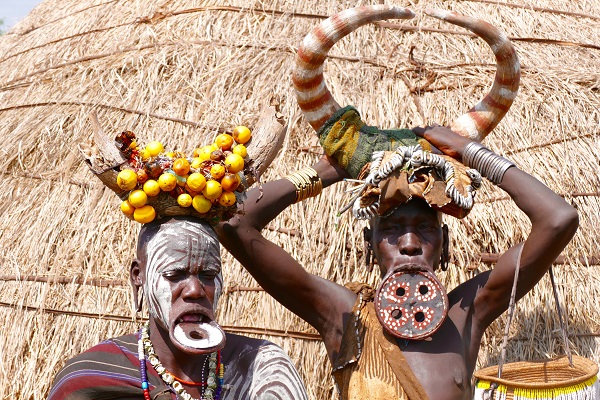
Day 11: Konso – Arba Minch (90 km)
Morning:
We continue to Arba Minch located in a wonderful setting between Lake Abaya and Lake Chamo with lush green hills surrounding the Rift Valley lakes. We will go on a boat cruise on Lake Chamo and search for Africa’s biggest crocodiles (up to 6m long), hippos and a large variety of bird life
Afternoon:
We will visit Dorze people with some fantastic scenery, including the Wolayta farmlands, with views of the lush green hills and valleys. The Dorze village is found high in the Guge Mountains overlooking lake Abaya and Lake Chamo.
Accommodation: Lodge, Arba Minch
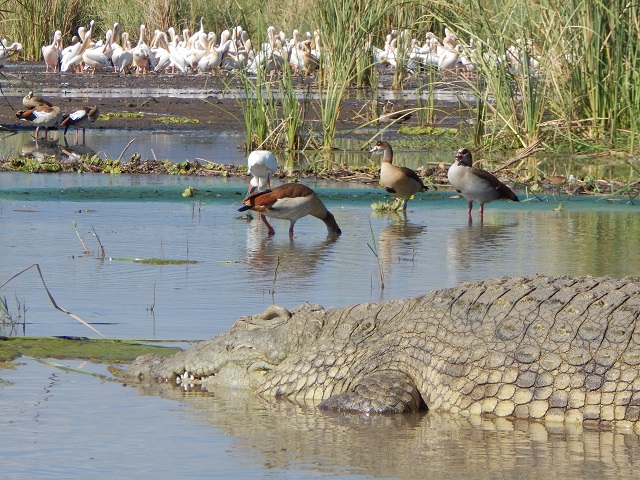
Day 12: Arba Minch – Addis Ababa (465 km)
Morning /Afternoon:
After breakfast, we drive back to Addis Ababa (approx. 8 hrs), with a stop on the way at Tiya (80km from Addis Ababa) to explore the Stelae field of Tiya, listed as UNESCO world heritage site. Mysterious engraved stelae stretch across Southern Ethiopia. The field comprises 45 stones of up to 2-3m in height. We then continue to Addis Ababa, where we will arrive in the late afternoon.
Evening:
In the evening, you will be invited for a traditional Ethiopian dinner and dance show at a renowned restaurant of Addis Ababa. Then you will be transferred to the airport for your departure.
Departure or individual Extension




